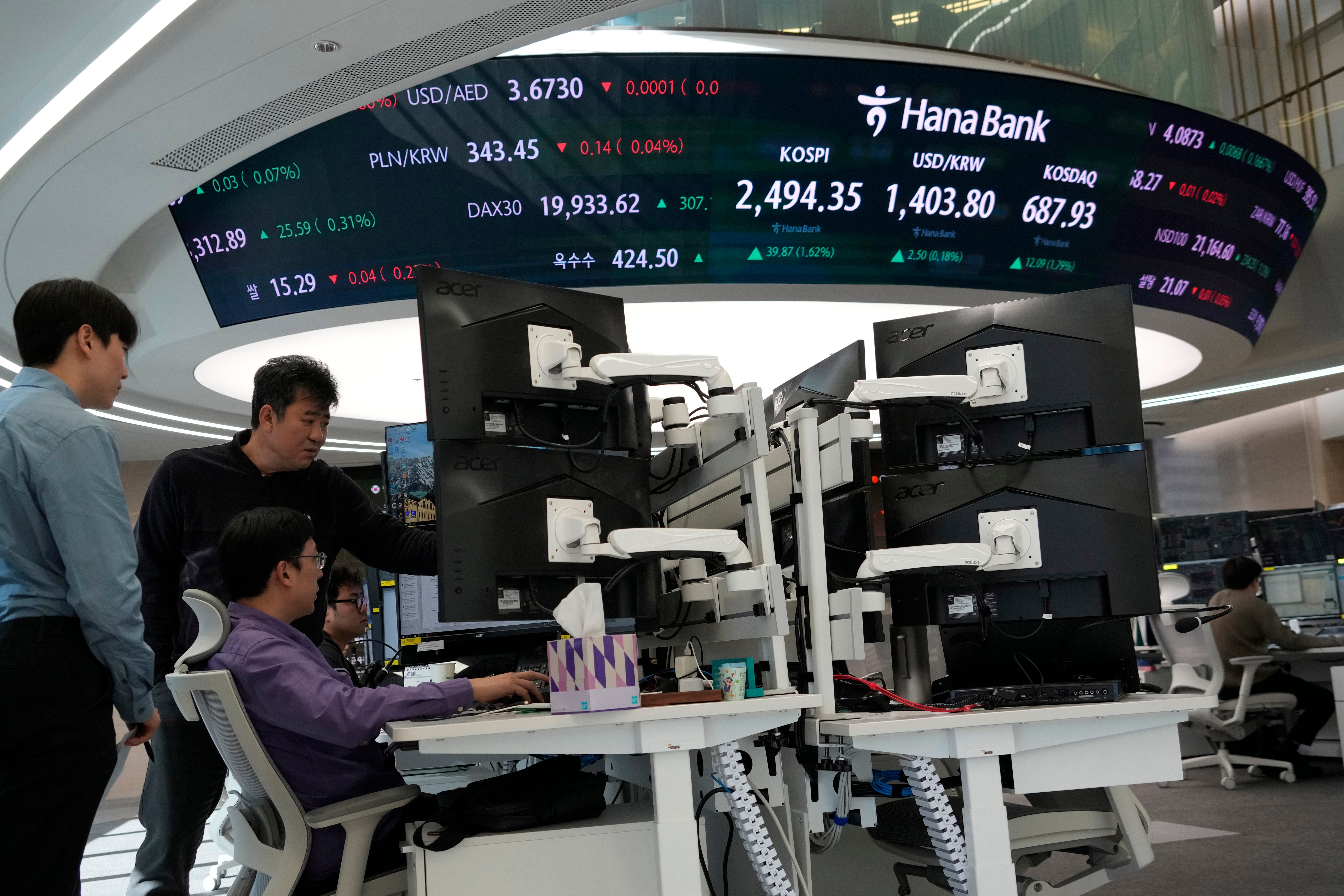Asian stocks drop amid South Korea’s political unrest as won hits two-year low
Asian markets are mostly lower after overnight political drama in South Korea added to regional uncertainties

Asian markets retreated Wednesday after overnight political drama in South Korea added to regional uncertainties, though the Kospi in Seoul fell less than 2%.
US futures rose while oil prices were little changed.
South Korea PresidentYoon Suk Yeol suddenly declared martial law on Tuesday night local time, prompting troops to surround the parliament. He accused pro-North Korean forces of plotting to overthrow one of the world’s most vibrant democracies. The martial law was revoked about six hours later.
On Wednesday, South Korea’s main opposition party called for President Yoon to resign immediately or face impeachment.
Yoon's move initially caused the won to plummet to a two-year low against the US dollar, with losses of up to 2%, the sharpest one-day drop since the market’s seismic reaction to Donald Trump’s 2016 election victory. The won recovered some of those losses on Wednesday. The dollar was trading at 1,414.43 won, down from Tuesday's peak at 1,443.40.
South Korea’s Kospi lost 1.9% to 2,451.64. Shares of Samsung Electronics, the country's biggest company, fell 1.1%. Meanwhile, the country’s financial regulator said they were prepared to deploy 10 trillion won ($7.07 billion) into a stock market stabilization fund at any time, the Yonhap news agency reported.
Elsewhere in the region, China announced Tuesday it was banning exports to the United States of gallium, germanium, antimony, and other key high-tech materials with potential military applications. Beijing took the measure after the U.S. expanded its list of Chinese companies subject to export controls on computer chip-making equipment, software, and high-bandwidth memory chips.
Hong Kong’s Hang Seng added less than 0.1% to 19,752.59, while the Shanghai Composite edged down 0.1% to 3,375.20.
Japan’s benchmark Nikkei 225 dipped 0.4% to 39,077.04. Australia’s S&P/ASX 200 dropped 0.5% to 8,454.10.
On Tuesday, U.S. stocks tiptoed to more records, tacking a touch more onto what’s already been a stellar year.
The S&P 500 edged up less than 0.1% to 6,049.88, setting an all-time high for the 55th time this year. The Dow Jones Industrial Average slipped 0.2% to 44,705.53, while the Nasdaq composite added 0.4% to 19,480.91, hitting its own record set a day earlier.
Treasury yields held relatively steady after a report showed U.S. employers were advertising slightly more job openings at the end of October than a month earlier. Continued strength there would raise optimism that the economy could remain out of a recession that many investors had earlier worried was inevitable.
The yield on the 10-year Treasury rose to 4.23% from 4.20% from late Monday.
Yields have seesawed since Election Day on worries that Trump’s preferences for lower tax rates and bigger tariffs could spur higher inflation. But traders are still confident the Federal Reserve will cut its main interest rate again at its next meeting in two weeks. They’re betting on a nearly three-in-four chance of that, according to data from CME Group.
Lower rates can give the economy a lift but also tend to fuel inflation.
A report this week that could guide the Fed’s next move will be Friday's jobs report, which will show how many workers U.S. employers hired and fired during November. It could be difficult to parse given how much storms and strikes distorted figures in October.
Based on trading in the options market, Friday’s jobs report appears to be the biggest potential market mover until the Fed announces its next decision on interest rates December 18, according to strategists at Barclays Capital.
In energy trading, benchmark US crude lost 5 cents to $69.99 a barrel. Brent crude, the international standard, added 7 cents to $73.69 a barrel.
In currency trading, the U.S. dollar rose to 149.75 Japanese yen from 149.59 yen. The euro cost $1.0495, down from $1.0510.
Bookmark popover
Removed from bookmarks